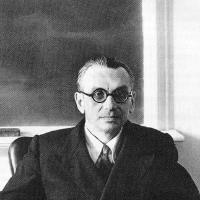
苦难与真相:修昔底德“雅典瘟疫叙事”的修辞技艺


独家抢先看
苦难与真相
修昔底德“雅典瘟疫叙事”的修辞技艺
白春晓
作者简介:白春晓,浙江大学历史系博士后。杭州 310028
人大复印:《世界史》2012 年 11 期
原发期刊:《历史研究》2012 年第 4 期 第 22-35 页
关键词: 修昔底德/ 雅典瘟疫/ 古希腊/ 修辞术/
摘要:修昔底德借鉴了古希腊的医学与诗歌而在其“雅典瘟疫叙事”中充分描绘了令人痛苦与恐惧的疾病。然而,他对雅典瘟疫的叙述既非为了医学上的治疗,也未像诗人那样将瘟疫的产生归因于神祇,相反,他用一种精确写实的修辞手法向他的读者揭示出带有悲剧性的人类处境。修昔底德写作的文本是供私人阅读与传播的,而非面向公众的作品,这决定了他的叙事方式不属于当时面向公众的修辞风格。
注释:
①修昔底德认为,在这场战争中不仅人类行为(战争、内战、流亡、屠杀等),而且自然现象(地震、日食、干旱、饥馑、瘟疫等)都表现出了极端的情况,而瘟疫是其中造成最大损失的一种。详见修昔底德,1.23.1-3.参见 Adam M.Parry,“Thucydides' Historical Perspective,”The Language of Achilles and Other Papers,New York:Oxford University Press,1989,pp.286-300,尤见 pp.289-290.本文所使用的修昔底德著作希腊原文依据的是“牛津古典文本”(Oxford Classical Texts ),参见Henry Stuart Jones,ed.,Thucydidis Historiae,revised by John Enoch Powell,2 vols,Oxford:Oxford University Press,1942.文中所引用希腊原文除注明外均为笔者自译。
②修昔底德尚无现代意义上的历史学科概念,他根据古希腊人所固有的观念将所记述的内容分为λσγο(言语,主要指演说、辩论、对话的内容)和εργον(行动,主要是对城邦政治与战争有影响的事件),见修昔底德,1.22.1-2.他对所述内容既追求精确,又有明确的选择性,而且在文本的编写上往往暗含着某些叙事目的。比如,他只在2.47-54这一片段中详细地描述瘟疫的产生、症状,以及对雅典人政治、道德和社会生活的影响,在此之后就很少叙述瘟疫了(仅在3.87中较简略地提及再次发生在雅典的瘟疫)。而且,他将战争第二年雅典爆发的瘟疫直接编排在“伯里克利国葬演说”之后,显然是有意识地令读者感受到伯里克利在国葬演说中所赞颂的秩序与信心同瘟疫之后雅典人所面临的混乱与沮丧所形成的鲜明对比。笔者认为,修昔底德的写作具有多种叙事方法和修辞技巧,而他对雅典瘟疫的记述是其历史叙事(尤其在εργοα方面)的经典文本片段之一,所以用“雅典瘟疫叙事”来指称这一文本片段。关于对修昔底德文本的叙事学研究,参见Tim Rood,Thucydides:Narratzve and Explanation,New York:Oxford University Press,1998,pp.3-23.
③修昔底德,2.14.1-2,16.1-2,17.1-3.
④修昔底德,2.48.2,2.52.1-2,3.87.1-2.
⑤修昔底德,3.87.2-3.参见A.W.Gomme,A.Andrewes and K.J.Dover,A Historical Commentary on Thucydides (以下简称HCT),5 vols,Oxford:Oxford University Press,1945-1981,vol.2,p.388; Simon Hornblower,A Commentary on Thucydides (以下简称CT),3 vols,Oxford:Oxford University Press,1991 2008, vol.1,pp.494-495.雅典在战争爆发时大约有13000名重装步兵,16000名守护境内要塞与城墙的士兵,1200名骑兵,1600名弓箭手和300艘海上三列桨战船。当时的雅典总计大约有40000名男性公民。见修昔底德,2.13.6-8.另参见CT,vol.1,pp.255-258,尤见p.256.此外,由哈格浓和克利奥彭帕斯率领、用以增援围攻波帖代亚的雅典军队,由于军中也盛行瘟疫,非但未能按计划占领波帖代亚,以致无功而返,还造成逾四分之一的士兵死亡;他们甚至将疾病传染给了当地的雅典驻军。见修昔底德,2.58.1-3;A.J.Holladay and J.C.F.Poole,“Thucydides and the Plague of Athens,” The Classical Quarterly,New Series,vol.29,no.2,1979,p.287.
⑥修昔底德,2.50.1,57.1.
⑦修昔底德,2.47.3.
⑧A.J.Holladay and J.C.F.Poole,“Thucydides and the Plague of Athens,” p.295.关于雅典瘟疫究竟是哪种疾病的讨论,详见HCT,vol.2,pp.150-153; A.J.Holladay and J.C.F.Poole,“Thucydides and the Plague of Athens,” pp.286-295.
⑨A.J.Woodman,Rhetoric in Classical Historiography:Four Studies,Portland:Areopagitica Press,1988,pp.32-33.
⑩虽然许多学者认为索福克勒斯创作《俄狄浦斯王》的背景与雅典瘟疫有关,但现在大致只能断定这一悲剧是在公元前420年代上演的,而无法确知诗人是在瘟疫发生之前还是之后进行构思的,以及悲剧的寓意是否真的受到这场瘟疫的影响。参见Bernard M.W.Knox,“The Date of the Oedipus Tyrannus of Sophocles,” The American Journal of Philology,vol.77,no.2,1956,pp.133-147,尤见 pp.137-138,147; Charles Segal,Oedipus Tyrannus:Tragic Heroism and the Limits of Knowledge,New York:Oxford University Press,2001,pp.11-14.
(11)伍德曼也承认荷马并没有充分描述瘟疫,见A.J.Woodman,Rhetoric in Classical Historiography:Four Studies,p.32.
(12)卢克莱修的《物性论》(De Rerum Natura,6.1138-1286)、奥维德的《变形记》(Metamorphoses,7.523-81)、维吉尔的《农事诗》(Georgics,3.478-566)以及普罗科匹厄斯的《查士丁尼战记》(De Bellis,2.22-23)中对瘟疫的描写都不同程度地受到过修昔底德“雅典瘟疫叙事”的影响。参见HCT, vol.2,p.146; J.S.Rusten,Thucydides:The Peloponnesian War,Book Ⅱ,Cambridge:Cambridge University Press,1989,pp.179-180; Diether Roderich Reinsch,.“Byzantine Adaptations of Thucydides,” in Antonios Rengakos and Antonis Tsakmakis,eds.,Brill's Companion to Thucydides,Leiden:Brill,2006,pp.769-771.
(13)mile Littré,ed.and trans.,Oeuvres compètes d'Hippocrate,Amsterdam:Adolf M.Hakkert,1973 vol.1,pp.474-475.参见Charles Norris Cochrane,Thucydides and the Science of History,London:Oxford University Press,1929,p.16.
(14)Charles Norris Cochrane, Thucydides and the Science of History, p. 15.参见 H.-P. Stahl,Thucydides:Man's Place in History,Swansea:The Classical Press of Wales,2003,p.14.
(15)D.L.Page,“Thucydides' Description of the Great Plague at Athens,” The Classical Quarterly,New Series,vol.3,1953,pp.98-110.
(16)A.J.Holladay and J.C.F.Poole,“Thucydides and the Plague of Athens,” pp.295-300,尤见 pp.296,300.
(17)CT,vol.1,pp.317-318; 参见 Simon Hornblower,Thucydides,London:Duckworth,1987,p.97;“Intellectual Affinities,” in Jeffrey S.Rusten,ed.,Oxford Readings in Classical Studies:Thucydides,New York:Oxford University Press,2009,pp.85-86.
(18)Adam M.Parry,“The Language of Thucydides' Description of the Plague,” The Language of Achilles and Other Papers,pp.156-176,尤见p.171.另参见H.T.Wade-Gery为《牛津古典词典》撰写的“Thucydides”词条,见Simon
Hornblower and Antony Spawforth, eds.,The Oxrford Classical Dictionary,Oxford and New York:Oxford University Press,2003,p.1519.类似的观点还可参见 Thomas E.Morgan,“Plague or Poetry? Thucydides on the Epidemic at Athens,”Transactions of the American Philological Association,vol.124,1994,pp.197-209.
(19)A.J.Woodman,Rhetoric in Classical Historiography:Four Studies,pp.38-39.
(20)希波克拉底:《流行病学》(三),1.a.见W.H.S.Jones,ed.and trans.,Hippocrates,vo1.1,Loeb Classical Library,Cambridge,Mass.:Harvard University Press,1923,pp.218-219.
(21)《剑桥古典文学史》也指出“《希波克拉底全集》的文学地位是有限的”。见P.E.Easterling and B.M.W.Knox,eds.,The Cambridge History of Classical Literature (以下简称CHCL),vol. 1,Greek Literature,Cambridge:Cambridge University Press,1985,p.477.
(22)修昔底德2.49.1-8.
(23)D.L.Page,“Thucydides' Description of the Great Plague at Athens,” pp.98,109.参见 CHCL,vol.1,p.477.
(24)关于希波克拉底时期希腊医学尚未完全专业化的情况,参见G.E.R.Lloyd,ed.,Hippocratic Writings,Harmondsworth:Penguin Books,1983,pp.13-16.
(25)详见Adam M.Parry,“The Language of Thucydides’Description of the Plague,”pp.165-170.
(26)修昔底德,2.47.4,51.4,51.6,58.2.
(27)修昔底德,2.48.3.
(28)修昔底德,2.49.8,51.6;D.L.Page,“Thucydides’Description of the Great Plague at Athens,”pp.118-119.
(29)希波克拉底:《预后学》,1.,参见希波克拉底:《流行病学》(一),11,G.E R.Lloyd,ed.,Hippocratic Writings,p.16.
(30)修昔底德,2.48.3.
(31)修昔底德,2.47.4,51.3.
(32)Adam M.Parry,“The Language of Thucydides' Description of the Plague, pp.162-164,175-176 ; A.J.Woodman,Rhetoric in Classical Historiography:Four Studies,pp.38-39.
(33)关于修昔底德与希腊医学之间的关联与区别,还可参见E.M.Craik,“Thucydides on the Plague:Physiology of Flux and Fixation,” The Classical Quarterly,New Series,vol.51,no.1,2001,pp.102-108; Rosalind Thomas,“Thucydides' Intellectual Milieu and the Plague,” in Antonios Rengakos and Antonis Tsakmakis,eds.,Brill's Companion to Thucydides,pp.92-108.
(34)Marcellinus,The Life of Thucydides, chapter 35, 37,参见Henry Stuart Jones, ed., Thucydidis Historiae.
(35)《伊利亚特》,1.44-53.
(36)修昔底德,2.50.1-2,52.4.
(37)参见G.S.Kirk,The Iliad:A Commentary,vol.1:books 1-4,Cambridge:Cambridge University Press,1985,p.58;A.J.Woodman,Rhetoric in Classical Historiography:Four Studies,p.38.
(38)“”(饥荒和瘟疫)是希腊文里押头韵的习语。见赫两俄德:《工作与时日》,第238-243行;希罗多德,7.171.2.参见W.W.How and J.Wells,A Cmmentary on Herodotus,2 vols, Oxford:Oxford University Press,1928,v01.2,p.205;M.L.West,ed.,Hesiod:Works and Days, Oxford:Oxford University Press,1978,p.218.
(39)修昔底德认为,“人们根据他们的遭遇来制造记忆”,即使先前的预言提及的是饥荒,但由于那时发生的是瘟疫,预言也会相应地改变。见修昔底德,2.54.3.
(40)修昔底德,2.54.2.修昔底德在此处或许义是在暗讽荷马,因为“战争伴随着瘟疫”最初可能就出现在《伊利亚特》中,见《伊利亚特》,1.61.参见Edgar c.Marchant,Thucydides:BookⅡ,Bristol: Bristol Classical Press,1978,p.196.
(41)索福克勒斯:《俄狄浦斯王》,第27—30行。
(42)参见R.D.Dawe,ed.,Sophocles:Oedipus Rex,Cambridge:Cambridge University Press,2006,pp.73—74.
(43)M.L.West,trans.,Hesiod:Theogony and Works and Days,Oxford:Oxford University Press,1988, p.xix.关于“整个城邦因一个人的罪恶而遭受灾难”和“罪恶会延祸子孙”的观念,韦斯特说,早在公元前14世纪,当赫梯王穆尔西里(Mursili)发现他的王国遭受瘟疫时,他无法想到自己有过任何罪恶,便把原因归于他父亲的失德。见M.L.West,ed.,Hesiod:Works and Days,pp.216-217.而且我们可以注意到赫西俄德和索福克勒斯诗中都提到瘟疫使妇女生产受到严重影响,危及家族后代的延续。见赫西俄德:《工作与时日》,第244行;索福克勒斯:《俄狄浦斯王》,第26—27行。
(44)M.L.West,trans.,Hesiod:Theogony and Works and Days,p.xvi;参见M.L.West,ed.,Hesiod: Works and Days,pp.3-25.
(45)例如,在著名的《出埃及记》中,摩西为使受法老奴役的以色列人离开埃及而求助于神,耶和华为此先后降下了十种灾祸到埃及人身上,其中第五种和第六种灾祸就是牲畜遭瘟和人畜生疮。见《出埃及记》,9.1—12.从中可以看到,韦斯特所说极有可能是准确的。法老的心“固执”和“刚硬”导致了耶和华不断在全体埃及人身上降下灾祸——不仅“邪恶的人得到了报应”,而且他还将灾难带给了他的臣民。尽管一神教的希伯来人将瘟疫归源于“耶和华的手”,而多神崇拜的希腊人认为许多神祇都能产生瘟疫,法老和阿伽门农与俄狄浦斯所犯的过错又是如此不同,但结果却都导致了瘟疫在他们治下的全体臣民中流行。
(46)修昔底德,2.47.3.
(47)修昔底德,2 48.1-2.
(48)CT,vol.1,p.318.
(49)修昔底德,1.22.2.
(50)H.D.Westlake,“ in Thucydides,”Mnemosyne,Series 4,vol.30,1977,p.350.
(51)在某些晚期的自然哲学家和早期的医学著作中也有类似的技巧,这与当时正兴起的面向公众的修辞术有关。见Rosalind Thomas,Herodotus in Context:Ethnography,Science and the Art of Persuasion,Cambridge:Cambridge University Press,2000,pp.235-248,尤见 pp.235,247.
(52)H.D.Westlake,“ in Thucydides,”p.347.修昔底德似乎是为了强调他在一开始时所宣称的“瘟疫随着这场战争而来”的观点,所以在“雅典瘟疫叙事”开始和结束时(2.47.3,54.5)都提到了瘟疫和战争的同时性。他说,当伯罗奔尼撒人侵入阿提卡乡间之后不久,瘟疫就发生了。关于雅典民众的恐慌情绪,霍恩伯劳尔提醒我们不能忘记当欧洲“黑死病”爆发时,犹太人、阿拉伯人、朝圣者和麻风病患者也都被怀疑过在井里投了毒。见CT,vol.1,p.319.
(53)修昔底德,2.52.3.
(54)修昔底德,2.53.4.
(55)参见Borimir Jordan,“Religion in Thucydides,” Transactions of the American Philological Association,vol.116,1986,pp.131-133.
(56)参见Antonios Rengakos,Thucydides' Narrative:The Epic and Herodotean Heritage, in Antonios Rengakos and Antonis Tsakmakis, eds., Brill's Companion to Thucydides, pp. 279-300;
A. J.Woodman,Rhetoric in Classical Histot'iography:Four Studies,pp.6-7,29.
(57)Tim Rood,“Objectivity and Authority:Thucydides'
Historical Method,” in Antonios Rengakos and Antonis Tsakmakis,eds.,Brill's Companion to Thucydides,pp.225-227.
(58)修昔底德,1.21.1,22.4.
(59)此处修昔底德主要暗指赫卡泰乌斯(Hecataeus)和希罗多德,参见HCT,vol.1,pp.138-139;CT, vol.1,pp.58-59.
(60)据现存的希腊文献,“”这个词在修昔底德使用之前没有出现过,修昔底德也就在这两处使用过该词,之后的古代作家使用它时也大都依据修昔底德的用法。因此有理由相信,修昔底德创造了这个词,以与常见的“”相区别。参见Stewart Flory,“The Meaning of (1.22.4)and the Usefulness of Thucydides’History,”The Classical Journal,vol.85,no.3,1990,pp.193-194.
(61)修昔底德,2.15.1-2.
(62)拉铁摩尔(Steven Lattimore)译为“patrlotic fiction”和“patriotic storytelling”.见Steven Lattimore, trans.,Thucydides:The Peloponnesian War,Indianapolis:Hackett,1998,pp.12,14.
(63)据说,修昔底德早年也曾被希罗多德的公开朗诵所深深感动,以致听得落泪。见Marcellinus,The Life of Thucydides,chapter 54.而修昔底德自己也撰写了许多激动人心的演说辞,在他笔下,雅典人非常喜爱听悦耳的话语(尤其当这些话语是关于他们自己时)。但他撰写它们的目的不是用来取悦当时一般的听众,而是试图揭示它们对雅典不同决策和最终战败所产生的影响。见克里昂对雅典人的批评(3.38.7,40.3)和尼西阿斯给雅典人的信(7.14.4),参见Stewart Flory,“The Meaning of (1.22.4)and the Usefulness of Thucydides' History,”pp.199-200.
(64)详见Stewart Flory,“The Meaning of (1.22.4) and the Usefulness of Thucydides ' History,” pp.193-202.
(65)修昔底德,1.20.3.
(66)修昔底德说,当密提林人反叛和西西里远征惨败的消息刚传到雅典时,许多人都不愿意相信。同样,叙拉古人起初在很长时间内都不愿相信雅典人要进攻他们的消息是真的。详见修昔底德,3.3.1,6.32.3.8.1.1.
(67)修昔底德,2.51.6,53.1-3.修昔底德描绘了幸免于难的人在瘟疫的极度折磨和恐惧之后心理上的强烈变化。高默(A.W.Gomme)提醒我们不要忘记修昔底德自己也是这样一名幸存者。见HCT,vol.2,p.158.
(68)埃斯库洛斯:《祈援女》,第659—662行。
(69)见修昔底德,5.102,103.1-2,111.2.
(70)修昔底德,3.82.2.
(71)公元前5世纪后期,诗人、吟诵者、修辞学家、智术师,还有包括希罗多德在内的散文作家等,都常在希腊各城邦间旅行并向公众进行他们的表演,形成了当时的“表演文化”。参见Rosalind Thomas, Herodotus in Context :Ethnography,Science and the Art of Persuasion,chapter 8.
(72)见Dionysius of Halicarnassus,On Thucydides,尤见 chapter 24,29,33,35,46,48,49,51; Rosalind Thomas,Literacy and Orality in Ancient Greece,Cambridge:Cambridge University Press,1992,pp.103-104.
(73)Simon Hornblower,Thucydides,p.29.
(74)参见Rosalind Thomas,Herodotus in Context:Ethnography,Science and the Art of Persuasion,p.267.
(75)修昔底德称,西西里远征前大多数雅典人对当地情况是无知的,而远征失败后民众又迁怒于鼓动战争的演说家,仿佛他们自己没投过票一样。对斯巴达国王投票权和雅典僭主被推翻情况的重新审视都反映出他对流行意见的态度。见修昔底德,6.1.1,8.1.1,1.20.2 3,6.54-59.
(76)W.Robert Connor,Thucydides,Princeton:Princeton University Press,1984,p.13; Rosalind Thomas Herodotus in Context:Ethnography,Science and the Art of Persuasion,pp.226-227,238,283.
(77)参见Peter Hunt,“Warfare,”in Antoraos Rengakos and Antonis Tsakmakis,eds,,Brill's Companion to Thucydides,pp.411-412.
“特别声明:以上作品内容(包括在内的视频、图片或音频)为凤凰网旗下自媒体平台“大风号”用户上传并发布,本平台仅提供信息存储空间服务。
Notice: The content above (including the videos, pictures and audios if any) is uploaded and posted by the user of Dafeng Hao, which is a social media platform and merely provides information storage space services.”











